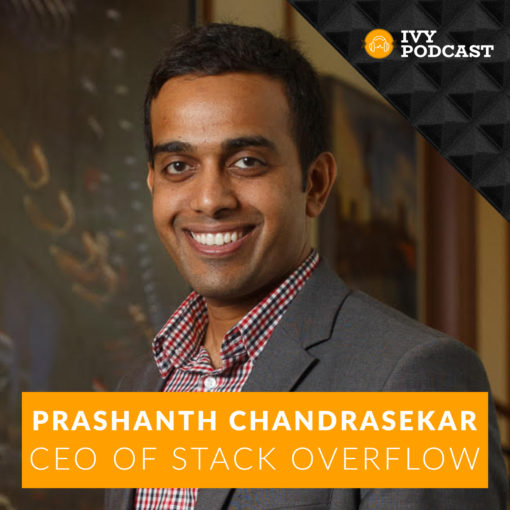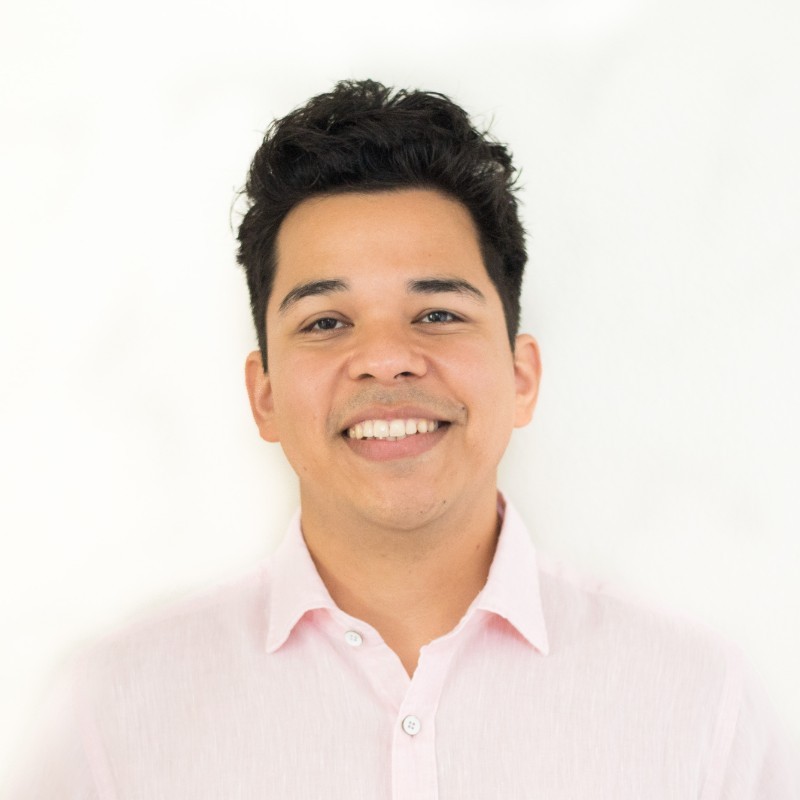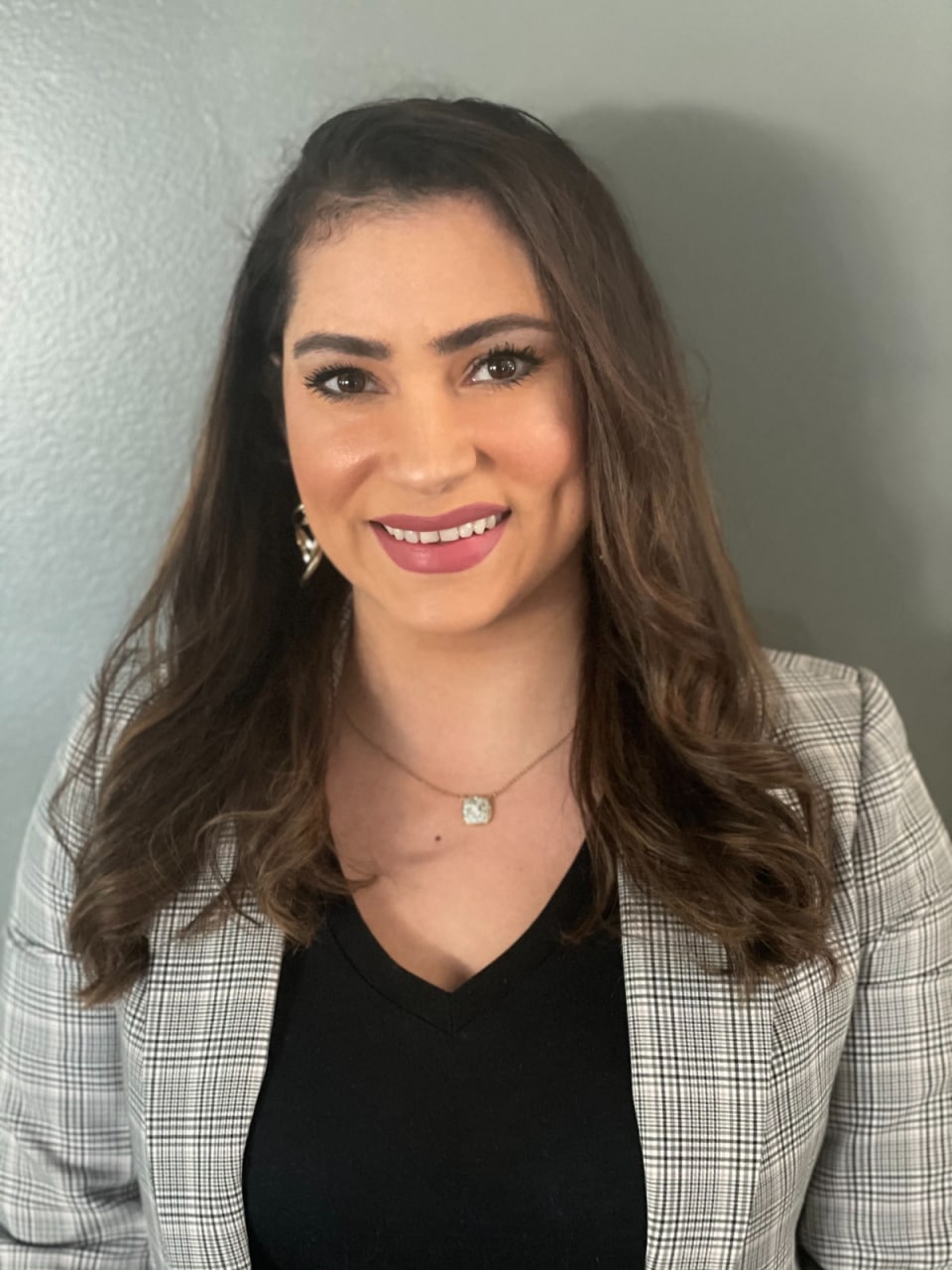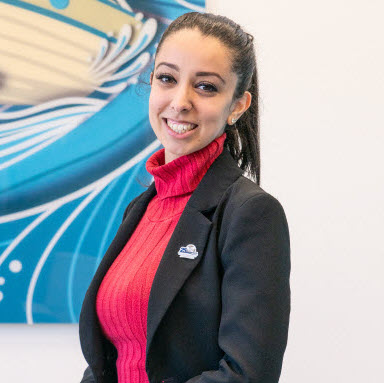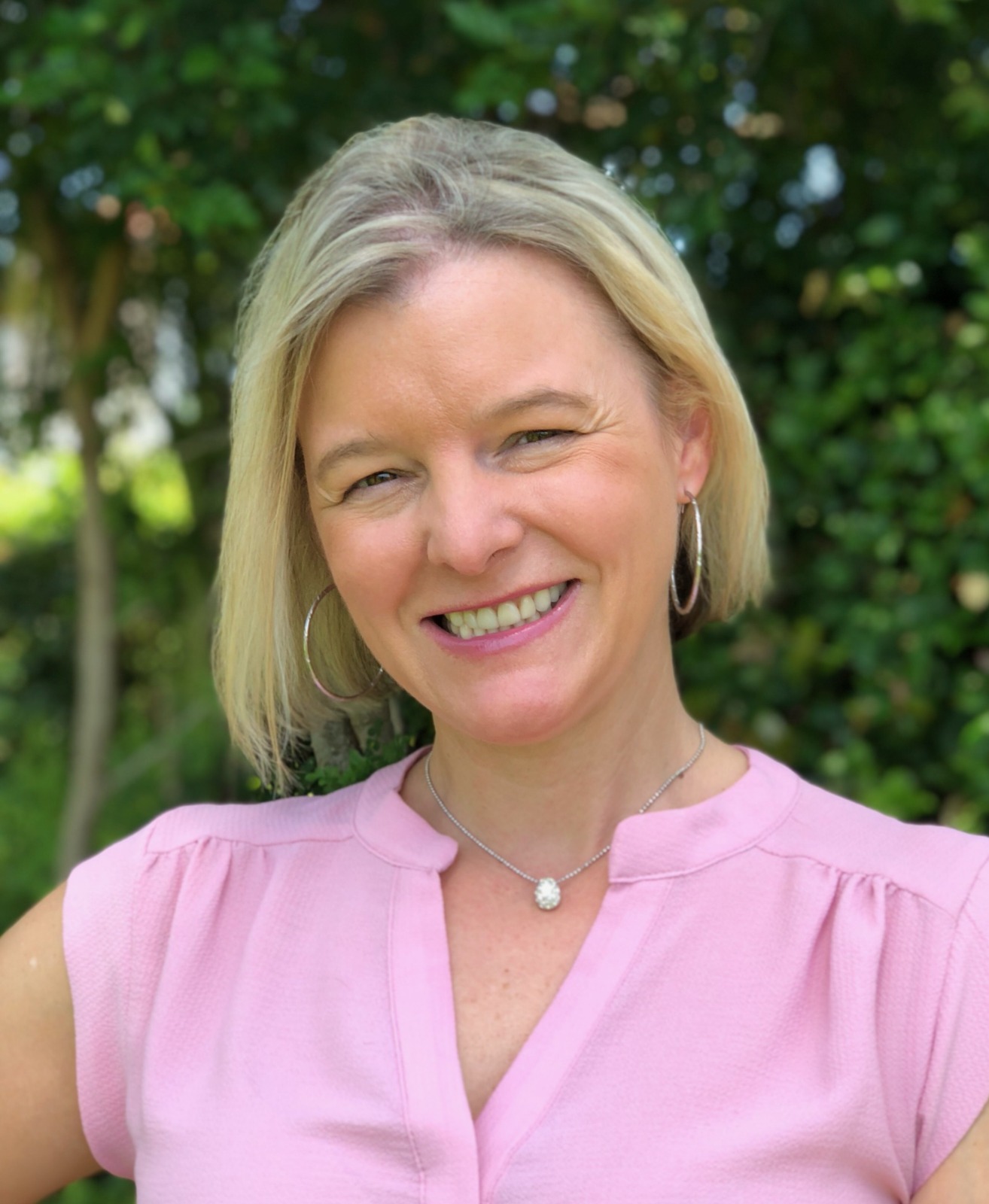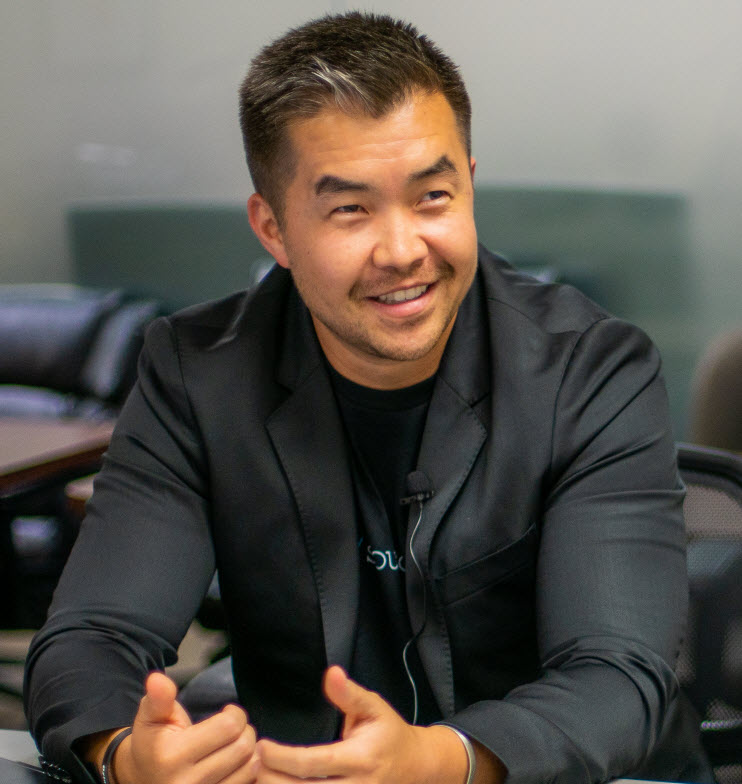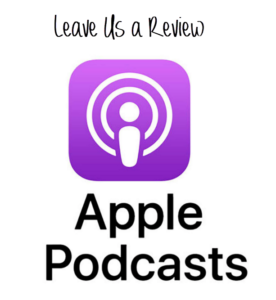
Rachel is Senior Associate at Unusual helping to build and support the firm’s consumer investments. Rachel’s passion for business lies at the intersection of products and people. Rachel started her career as a consultant with McKinsey & Company with a focus on consumer brands, retailers, supply chain, and manufacturing. She then joined the Corporate Strategy team at Nordstrom Inc. Most recently, Rachel was an early-stage investor on the consumer team at Shasta Ventures. Rachel grew up in the San Francisco Bay Area, a place that has given her a deep appreciation for the entrepreneurial journey. She was a part of the team that launched SparkTruck, a non-profit organization that brought design-thinking curriculum to students across the country via a mobile classroom. She has been a speaker at TED events, for the Aspen Institute, and at Autodesk University. Rachel holds a BS from Northwestern University where she studied Manufacturing Engineering and Psychology.
Episode transcription:
[00:00:13]Rachel Star: Hi there. I'm Rachel Star and I'm an early stage investor at Unusual Ventures. [00:00:17] Jahn Karsybaev: [00:00:17] Rachel, thanks so much for finding time and joining us on the Ivy Podcast. I understand you're visiting Miami these days. Yes, I was how's the experience so far. [00:00:29] Rachel Star: [00:00:29] It's been great. I have some family in the area, so it's been awesome to get to spend some time with them and heading back out to San Francisco. [00:00:38] Jahn Karsybaev: [00:00:38] That's awesome. Yeah, we've been quite hot these days. Not only from the weather perspective, for both from the tech scene, that all of the stuff that goes on with our mayor, he's actually supposed to be coming on the show soon as well. So we're going to talk a lot about also the Miami tech week that just happened. So a lot of exciting things, kind of the media version of Silicon valley, I guess. Rachel Star: Yeah, for sure. Jahn Karsybaev: Before we talk about your current role and what you're currently working on, we'll spend a little bit of time getting to know you. Tell us a thumbnail version of your career timeline and what have you done prior to where you're currently working? [00:01:15] Rachel Star: [00:01:15] Yeah, it's a great question. And I have bounced around quite a bit in my career. So I'll start with college. I went to Northwestern university. I studied manufacturing, engineering and psychology. So sort of an unconventional combination, but to me it was really about understanding products from various different lenses. So marrying the technical side of how you actually make and manufacture something with the psychological side of who is your user? How do you understand how people interact with objects on a day-to-day basis? I then did a quick stint at the Rhode Island school of design studying studio. So I wanted to get the artistic and creative lens in that whole product design world, took a detour and joined McKenzie and company based out of our Chicago office primarily focused on the retail sector. And then join Nordstrom Inc based out of Seattle on the corporate strategy team. So I took a number of different stops before joining my first role in VC, which was at Shasta Ventures. I was there on the early stage consumer team for a handful of years, and then just joined Unusual Ventures about a year. [00:02:22] Jahn Karsybaev: [00:02:22] Well, super exciting. Thanks for that overview or what are diverse and interesting backgrounds you've got from different sectors, different industries. As far as your current role, tell us a little bit more about that. What falls under your purview? What are the interesting sides of your responsibilities? Happy to hear about that. [00:02:40] Rachel Star: [00:02:40] Yeah. So either unusual, I sit on our consumer. Yeah. Which means I cover everything consumer-facing from, I do more social products, consumer finance in anything that you or I might use on a day to day basis. I also spend a lot of time covering the FinTech sector. So in addition to consumer FinTech, I look at B2B finance products and other FinTech infrastructure in the life for me can range greatly, but I spend a lot, a lot of my time trying to source and find new potential investments. Doing diligence and research on various sectors to support those potential investments. And then I spend a decent amount of time supporting our existing investments and working with our portfolio founders on various different things that might come up. [00:03:24] Jahn Karsybaev: [00:03:24] Oh, that's super cool. And which raises so many other questions that I want to cover with you today, but I know we're limited on time in terms of the deal flow from unusual ventures, it gets perspective. I'm sure you guys get some great deal flow from just founders. People just supply directly to you, aside from that, what are the different sources of deal flow for you that you found to be useful, you found to be interesting that you explore maybe on daily basis. [00:03:56] Rachel Star: [00:03:56] Yeah. I think one of the most exciting things about investing at the early stage is that great founders can come from anywhere. And so with that great deals can come from anywhere. And so, throughout my career, I have found deals in some of the most unexpected places which is always amazing, especially on the consumer side. We have the luxury of running into interesting products in our day to day. So actually the first deal that I ever sourced in my career was my first week on the job. And I attended an event I snuck in, it was actually a Harvard business school event. I didn't go to Harvard business school, but I met a fantastic young female founder. Really clicked with her and had her and her co-founder come in. It was the first meeting I ever took solo as an investor and converged on a fantastic investment one that I'm very proud of. And that was just the happenstance of being at the right place at the right time running into people out of EDS and, and getting to know folks in various different ways. Hm, I think more recently as I've matured in my career, I've found my sourcing has become a little bit more thematic or theme focused. And so I like to do kind of a deep dive on. Kind of niche sector, trying to understand the ins and outs. I find particularly when you're looking at complex things, FinTech is a great example. It's really helpful to come into even first meetings with founders, with a little bit of a prepared mind on the topic. Otherwise it's easy to get bogged down in the details of regulatory and other things that have to research in order to really understand that. So I tend to pick off one or two topics per month, really spend some time time to understand that speaking with people who are in the industry and oftentimes through that, either they'll connect me with founders who are relevant or maybe I'll post something on LinkedIn or Twitter, and folks will kind of come out of the woodwork. [00:05:47] Jahn Karsybaev: [00:05:47] Well, that's very interesting. And thanks for sharing that. So, definitely very creative ways, creative strategies to diversify your deal flow. And I can attest to you've mentioned alumni networks, I'm part of the HBS alumni angels. And so the quality of startups that are presenting on the basis, it's and your creative ways to be part of an ecosystem. This, I think that's a great way to kind of increase the quality or diversity or your deal flow. As far as unusual ventures, what's the story behind the naming, what's how that all came about? Can you share with us anything from that perspective? [00:06:30] Rachel Star: [00:06:30] Sure. So the name Unusual, like many good nicknames, is one that was given to us, not one that we choose for ourselves, but when the team was out doing some early fundraising conversations and explaining their vision, For what they wanted to build folks kept saying, Hey, that sounds pretty unusual. Jahn Karsybaev: I haven't heard of anyone else doing that. Rachel Star: [00:06:49] Yeah. Yet. And so with that, the name unusual was born. And I think it kinda comes down to two main factors. So the first thing is how our team is structured. And the core focus there is that almost everyone on our team has either been involved with early stage companies for many years, whereas actually founded companies on their own. And I think with that comes a deep appreciation for how hard it is. And a deep empathy for the founders that we work with. And so with that in mind, we try to be helpful. And I know that many investors say that and I think. Everyone wants to be helpful in their own way, but we have tried to build a structure at the firms specifically that supports our ability to help out these early stage founders. So that's everything from the content we put out on our website to the partners we've got on our investment team. And probably most importantly, we've got an awesome group of folks on our team that we called the gap program or the get ahead platform. And these are folks who've been operators in employees. Areas like sales, marketing, and recruiting, and they're full-time with Unusual, but they spend almost a hundred percent of their time working with our portfolio companies. So we've really got a structure in house to be able to support founders as they go through some of the critical stages of the company. [00:08:07] Jahn Karsybaev: [00:08:07] Oh, that's great. Definitely sounds unusual. Appreciate the backstory on that. You've mentioned a value add investor which is a very interesting topic. I'm very passionate about this, but having been on both sides as a founder operator now on the angel investing side and part of other syndicates, it's an interesting dynamic. It's a very interesting relationship and sentiments and just in general. Where she talks to the investment community, VC community. They have one take on that from the founder standpoint, it could be different from your perspective, what are some of the strategies that really help you kind of break that barrier? As a true value add investor where you, you're not just coming in and helping from financial standpoint, but also trying to genuinely come up with strategies or things that really help the founders and their startups grow. [00:08:59] Rachel Star: [00:08:59] Yeah. It's a great question. And I think it almost starts before you invest in a company. And so one of the things that we feel really passionate about is actually creating content and putting it out there to the world, not just to the founders that we work with, about what it takes to start a company. And we actually recently just launched a spark program, which is early pre-seed investment from us in addition to some support from the team. I think with the realization that for many founders, the first round is a friends and family round and not everybody has access to friends and family who can invest in their company. And so in that way, the first way we can be value add is, Hey, like let us be that friend, family member, let us invest early in your company and support you. Right. But beyond that, I think it really comes down to figuring out the strengths of a founder and then being able to support them in their areas that maybe they don't have experience. For many folks who are founding companies, they wear a lot of hats, especially in the early days when maybe it's a team of two or three. Oftentimes we're supporting very technical founders, folks who are brilliant engineers, but maybe they've never been in charge of sales or recruiting or marketing before or maybe vice versa. It's a team that has a really unique insight to a specific market. But doesn't have the technical background to actually build the product that they're envisioning and so that we can support them hiring that first set of engineers. I think one of the things that's really fascinating and has been a big learning for me is that. Hiring is one of the most challenging things to do for an early stage company. And there's the question of where do you find great talent, which is certainly something that we work with our companies on, but also how do who's great. And how do you understand, particularly for skill sets that are not your own? What questions do you ask and how do you benchmark and evaluate whether or not this person is the right person to bring onto your team? So that's a big area. With us well, I'm thinking about, okay, you're hiring that first sales person. You've never done sales before. What do you think about that interview process and how do you make sure that this is really the right person to add? So I think that's a big area for us and something that even as companies scale continues to be an important priority, but at the early stage, the initial team is really critical. And in many cases can be kind of a make or break for our call. [00:11:19] Jahn Karsybaev: [00:11:19] Right, right. Absolutely. I love that. Take on the overall talent acquisition for startups, because that's a space where we play in. And I've seen the transformation, especially in the market where we have these days where it's not even necessarily the war for talent. It's almost a war on retention because everyone's shifting to full remote. Everyone thought about, oh, great, I'm going to get this insane access to talent. But that also increases the competition 10 X, where you have companies with brand names with much better packages with much greater cultures going after that same talent as well. So it becomes very challenging for startups not only to attract, but also retain the talent because all of the companies after that segment, but I'm sure we can talk about that for the rest of the episode to switch gears a little bit on you, you've mentioned, you gave us a little bit of a History on your career timeline, you spent some time in consulting on the consumer side, but in general, is that, was that the career path that you were after in terms of going into the venture capital investing. The reason I'm asking is because a good portion of our listeners. So now on the podcast side, we have early stage career professionals, second year MBAs. And a lot of questions that we get are from an overall career perspective. What are the different takes? And from the practitioner standpoint just share with us your thoughts on that, how to go about that career trajectory as you look into venture capital. [00:12:51] Rachel Star: [00:12:51] Yeah. It's a great question. And quite honestly, I think, when I was in school and when I was kind of demeaning my career path, I never even thought about venture capital as something that I could. I think it was a career for people who had a full career first and then maybe they were in their fifties, they were experienced and had expertise across various different areas that they could then apply to investing. It never crossed my mind that that was a job. I could have it at 25. But I think for me, the biggest piece of advice that I give to folks who are interested in brands and certainly I think is what pulls me into the industry is to just follow your passion, because I think that the best investors out there are people who have strong points of view on various different sectors. And I think, yeah. No matter what that sector is, you will be most successful if you really enjoy spending time, researching it, talking about it and building out connections in the industry, because that's what you're going to spend all of your time doing. And so for me initially, that was retail and consumer products. So I spent time at Nordstrom. I spent time thinking about how the direct to consumer ecosystem was affecting the big box retailers and folks like Nordstrom and our peers. I also ordered every single direct to consumer product and tried it out myself just because I found it fascinating. And I remember in my first set of interviews with what became my first role in a venture, I was on zoom and my apartment. And the partners were asking me about some of the different things that I was interested in. And I just remember shifting my computer screen over and showing them this pile of boxes that I had in my apartment of all of the different products that I had tried. And I just went through them one by one and said, okay, I liked this. I didn't like this one. Here's what I think they could do better. And that's what I did in my free time. I loved it. And so for me, I was able to talk really authentically and passionately about that topic. Of course, as my career has progressed, I've moved into other areas as well, but I think that's what made possible for me to break into this industry was just like my authentic feelings about this space and the fact that I was willing to dedicate both my time during the day as a job, but also my time after work to researching and getting to know the industry. So I think more so than exactly what job you hold or what degree you have from what university. I think that kind of drive in one area, building out your own thesis and making those connections is probably the most. [00:15:31] Jahn Karsybaev: [00:15:31] Very interesting. And from a standpoint of something that you didn't quite expect, or maybe the dark side of the industry, tell us a little bit more about that. What's been the most unusual, I guess, about venture capitals that you didn't know about that you wish you did. [00:15:52] Rachel Star: [00:15:52] Yeah. I'll answer that in two ways, because the first thing сomes to mind is the biggest surprise I actually think is a huge positive. But I definitely didn't realize how collaborative the industry was. And so, no matter what stage you're at, there's likely to be investors who are investing in the companies you work with before you and after you and in any given round more often than not, there's a number of different investors involved as well. And so the venture capital community is actually relatively close. And in my first couple of weeks, I got the opportunity to meet new investors, join other firms, work together with them and actually get to build pretty strong relationships with a cohort of other individuals who are now, both close friends and also colleagues in various different ways. I think, my experience at McKinsey, of course we weren't collaborating with each other. Зeers over at BCG or at Bain. And similarly at Northeastern, we were never collaborating with the teams over at Macy's or Bloomingdale's, but in BC, it's the opposite. Your network of other investors is actually really valuable. And so for me, it was really cool to get to partner with. Folks at other firms, get to know them and build kind of collective theses on different areas. I've been able to co-invest with a few of them, which has been really fun. And so I think that was a surprise that definitely has made my experience more positive. To answer your question about the dark side, I think , for many investors, the hardest thing is that we have to do it and we have to do it multiple times a day. Of all the meetings that I take, less than 1% are companies that we actually ended up investing in. And it's not always clear cut there's times when there's founders that I really love and the deal terms don't make sense, or it's a market that I think is really interesting, but I am not able to move fast enough and build conviction on the product. And so a lot of times, those conversations are really hard. And you have to sit down with somebody who maybe you've met a couple of times and you've spent a lot of time with and say, Hey, I know this is your dream, and I know you have a lot of conviction in it, but I can't support you in that way. And for me, I think that is a [00:18:00] really challenging conversation. Every single time, no matter how many times I do it, it doesn't get easier. And coming at somebody and our whole firm is built with people who want to help. And so being able to help is something that we love to do. And when we can't do that, I think that's hard. And we spend a lot of time having those conversations. [00:18:22] Jahn Karsybaev: [00:18:22] Yeah, no, that's very interesting. From the two perspectives, I really liked the overall concept that the entire industry of venture capital is very collaborative. And that makes sense because in a way that you're operating in very similar fields and you're probably valuing the same deals. So it makes sense to collaborate versus then competing because then it just creates a completely different dynamic. Well with the founders and whatever the case may be. So that makes total sense. And then from the standpoint of I guess rejection, it's probably nine out of 10 times, you have to say no, but to that point, have you gotten better to increase your batting average? So to say, when you meet with, let's say those 10 startups, 10 founders, maybe two years ago, where nine out of 10 was an immediate no, versus maybe now you've increased your approach or your thesis or whatever the case might be to pre-select that group. Is there any difference or any particular steps that you have taken to improve? [00:19:23] Rachel Star: [00:19:23] Yeah, I definitely think doing some of the research upfront is really helpful. And so when I first started, I would take meetings with anybody. I would hear their story, learn about the market and then do my research afterwards. And that led to a lot of instances where, after a couple of minutes of research, I could clearly get to an answer. Hey, maybe this market's not big enough or maybe it's too complex or regulated and I don't want to participate by front-loading the research and picking out areas. Proactively that I'm excited about. It makes it so that even if a company isn't ultimately something we invest in, it's usually a little bit more of an interesting conversation and it gets to a point where I can ask those sorts of questions that help me get to an answer faster. And so definitely that piece of the puzzle, I think, has fallen into place, but no matter how sure you are about markets or how excited you are about various different spaces. I think the reality of the industry is that you're always going to have a lot of meetings with companies that you don't invest in. And so that's just a piece of a puzzle. [00:20:30] Jahn Karsybaev: [00:20:30] Right, right, right. Absolutely. And when we talk about the actual evaluation strategy, when you do that research, when you talk to others and follow up, I guess the digital breadcrumbs to maybe evaluate a founder From the founder market fit. What are some of the things that really help you make those very early prints addictions about their particular founder? The reason I ask this is because before we get to the king of the product market fit and assessing the overall market, I'm pretty sure that one of the initial things you look at the founder or the founding team, and for me, I found through kind of several years, me being in this field is the ability to clearly articulate what you don't know is one of the very rare abilities for a startup founders. I remember it was very hard for me as well because we were moving at 10,000 miles per hour trying to build this thinking. We know everything, but also at the same time are looking at very early careers of the founders, maybe even high school, early career days, college days, where. Did you join the club or did you build a club or were you a, I heard it somewhere on the podcast where a guy talked about cartographer versus a navigator. Where were you just following the map or where are you actual cartographer, where you create an actual map for others to follow? So those are some of the things that's very interesting to me when I get your take on that. [00:21:58] Rachel Star: [00:21:58] Yeah. I think you're spot on that. Evaluating a founder and understanding their perspective on them. Is one of the biggest things that we do in our diligence process, especially at the early stage. I think there's a few different factors that come into that decision. So the first is do they have some sort of unique insight or unique perspective on a market that the average person might not know? And so oftentimes this comes from people who've worked in the industry, or maybe they've been the customer that they're trying to sell to. And so they have some kind of secret sauce that they can provide and say, Hey, this is something that not everybody would know about this industry. And it's a problem that I am uniquely positioned to solve. So I think that's a big piece of it. The second is can I actually build whatever it is they say they want to build? I think for a lot of folks there's the idea of that phase, which is really interesting and very important, but then there's also kind of the technical chops of how to build a product? Can you get something off the ground? And I think that really goes to your point. The question of the navigator maybe that's not somebody who knows how to build something from scratch. And so I think trying to suss out is this person, somebody who can build something is definitely a big piece of the product process for us. And I think the last part, and this goes a little bit to the, is this somebody who can build something, but is this somebody who other people would want to work for? And is this somebody who can hire a good team? No matter how amazing a founder is, whether they know the market inside and out, whether they can build the product from scratch, if they can't hire people to work for them, it's never going to. And so for some folks that means having a really strong network of engineers. For some folks that means they're really charismatic and great at telling the story for other folks. It means that they are just. Somebody that has experience and people are excited to work with. But I think that's a really key part of the puzzle. Is trying to evaluate whether from references or spending time with somebody on their hiring strategy to figure out, will this person be able to attract eight plus people to come join the company. [00:24:08] Jahn Karsybaev: [00:24:08] Right, right. Absolutely. No, that's a great perspective. And you've mentioned something that's very, seems simple, but oftentimes overlooked is as an investor, almost our ability to get along with the founder as well, because through the next 10 years we're going to be. Together, were you going to be attached to the hip? And it's almost a relationship that we're both investing into. It's not just me investing in stepping away. It's really, can we actually go and grab a drink together and have a heart to heart conversation where it's not investor to a founder, but more in a sense, Hey, this is where we're struggling. What do we do about this because when the company has to pivot and those things, I think. Those small nuances become very important when you have that ability and the confidence level to have that honest conversation with your investor, with your partner. So that's very powerful. When we, as we move on from kind of that founder risk to the actual product, Category and we'll look at the product market fit. And there are early indicators that a particular company has scratched the surface, that there is a potential, there is interest to share with us, your thoughts on some of the things that you look for. What do you evaluate? What are the, maybe those indicators that tell you, maybe that's that, there's something there. [00:25:31] Rachel Star: [00:25:31] Yeah, it really varies by sector, but I think one of the things that we really look for is some indication of an organic swell of passion and energy, whether that's people who are tweeting about how much they love the product, whether that's people who are spending hours and hours and hours using the product in a given week, or whether that's people who are referring their friends. I think that at the earliest stages having people and having users who will be a champion for you is really important. And of course you can always tack on. Sales and marketing efforts down the road, but that organic love is something that's really hard to tack on later. And so at the earliest stages, there's various different metrics that you can look at. But I think that spark is something that we try to find. And so that, that is often kind of one of the earliest indicators of product market fit in our. [00:26:30] Jahn Karsybaev: [00:26:30] Right. Yeah, that's very interesting. And I think from the organic perspective, it's very important to also look at what the founder has done at the very early stage to really generate and garner some type of interest. We get that. You may not have the actual product and you may not have the actual technology, but validating that there is some type of interest, maybe some. Sign up list where you have people that are expressing an interest in spending time interviewing them. Those are some of the things that I think you are referring to. That's very interesting. What are some of the trends and insights that really excite you these days. Where do you spend a lot of your free time? That's maybe outside of your day-to-day job when you evaluate the startups, maybe something that's for you personally. That's very interesting. What are some of the things that you think will be next? [00:27:24] Rachel Star: [00:27:24] Yeah, it's a great question. I think for me one of the things that's been really interesting over the past year has been thinking about how we all work and interact with our coworkers. And for me, I started at unusual at the end of March, 2020. So I've never been into our office. I have not met a lot of my teammates and. That's been a really interesting adjustment and I think there's significant pros and cons to that structure. And , as we discussed, I've had the luxury of working out here in Florida for a couple of months. And so trying to understand the momentum around remote work. As something that I feel really strongly about, and I think that there's various different pieces of infrastructure, whether that's communication tools, whether that's hiring tools, whether that's other ways that people can work together in interesting ways that will really fuel the future of our society. And I think there's a couple of things that really go into that of course the pandemic and everyone's had to get used to new ways of working. But I also think when you look at demographic trends and you look at gen Z, when you look at new grads who are coming out of school, their perspective on what a successful career path looks like is a lot different than even it was for me. And certainly than it was for me. And so I think for me, I'm really keen to be kind of a student of the consumer and a student of those demographic shifts. And I think that as more and more young people enter the workforce, there will be a pull for some more flexibility, whether that's enabling freelancers, whether that's having more collaboration tools that enable remote work or asynchronous communication. I find that really fascinating and that's certainly something that I'm spending a lot of time. [00:29:17] Jahn Karsybaev: [00:29:17] Yeah, that's a very interesting, very unique sector, but I can see how that could be a very big, very big trend in general that we all experience in our everyday lives. I think that's super interesting. And Rachel Anan conclusion, and I like to spend some time on your content diets. What do you consume on a daily basis? What are your sources for learning? What are the differences I dunno, handles, you may be following share with us your your, your secret sources that are bookmarked in your browser. [00:29:45] Rachel Star: [00:29:45] I definitely, , I'm active on Twitter. I think that's a great source of news and perspectives. There's a handful of newsletters that I really enjoy reading. Simon Taylor's FinTech brain food is a favorite of mine. I also really liked the accelerated newsletter by Justine and Olivia at CRV. But, I think for me, particularly on the consumer side, one of the things that I love is just talking to people who come from different backgrounds or who have different lifestyles than me. I think it's really easy to be in this tech bubble of people who work at startups and people who invest in startups. And there's a lot of people out there who. Have different sets of needs and use different sites, sorts of products, whether that's talking to my grandma about what she uses and what she's interested in and what her needs are, or, maybe that's talking to a friend who just had a baby and is in a different stage of life or someone who's planning a wedding. I think that getting to understand different perspectives where people are struggling in their life. It is actually the best sort of content diet, if you will, for a consumer investor. So there's nothing that makes me happier than getting to call up people in my life and get their perspectives on a company that I'm looking at or even better. Having my mom or my brother send me something and saying, Hey, have you looked at this? I just downloaded this app. And I think it's really cool. So, that's a big priority for me is trying to break out of just the tech ecosystem and try to understand the bigger picture of what's going on. And it's also a great way to connect with people in my life. So I certainly love that. [00:31:24] Jahn Karsybaev: [00:31:24] So combining work with personal it's it's pretty interesting. I'm actually going to steal that from you because a lot of times we don't think of our very close circles. I will love one seller families as potential sources for motivation learning and things like that. So I really like that advice. So that recommendation and Rachel, I asked this question not only on the podcast but also the people that I interview all for our job. For our companies. And it's, I found that question to be interesting because it really puts things in perspective. Not only just praising, I guess the other side or thinking of ways what has gone well, but also evaluating yourself as you think about some of the responses that you also provided as we had that conversation. So just in general, how do you think this conversation. [00:32:16]Rachel Star: [00:32:16] That's a great question. I think that, for me, I spend a lot of time talking about the industry, talking about my firm, talking about my path into venture capital, but it's always great to reflect and have a reminder of how far I've come. I think, specifically the questions that you asked around how my process has changed over the years on any given day, it feels like there's. Just incremental changes. But when I really look back and say what was it that I was doing three years ago, that I just am embarrassed, that I did, or what has changed in my process? It's always a great reminder for me. And a good learning experience. I don't always take enough time to take a step back and think through that thing. So for me, it's been valuable to take that time and get to do a little bit of reflection. And, for you, I hope it was a helpful conversation and it helped the listeners. We'll get something. [00:33:08] Jahn Karsybaev: [00:33:08] Oh, yeah, absolutely. I definitely appreciate all the insights and everything you had shared with us, I personally learned quite a bit and I'm pretty sure all listeners will do as well. We're going to stay in touch with you and perhaps I like to do another episode in about a year or so. So how much you've changed and transpired through this period and talk a little bit of time, as far as the reflection on here's the conversation we had a year ago, what has changed, how maybe your entire process or anything like this. So that's what I like. Perfect.
Welcome to Ivy Podcast! On this Executive Leadership Podcast we interview top executives from Fortune 500 with a focus on strategy, innovation, negotiation and everything about leadership.
Our Podcast for Executives features Thought Leaders who share practical insights for effective leadership, continuous innovation and strategy execution.
Ivy Podcast is a rapidly growing Executive Podcast, which covers topics like Hiring and Retention Strategies, Talent Acquisition, Innovation, Digital Transformation and much more.
On this Leadership Podcast, you will find conversations with the most accomplished executives from Fortune 100 companies. We aim to cover a broad range of industries and create a learning platform for the most ambitious and high potential professionals who are looking to learn from the most accomplished Executives on this Business Leadership Podcast.



